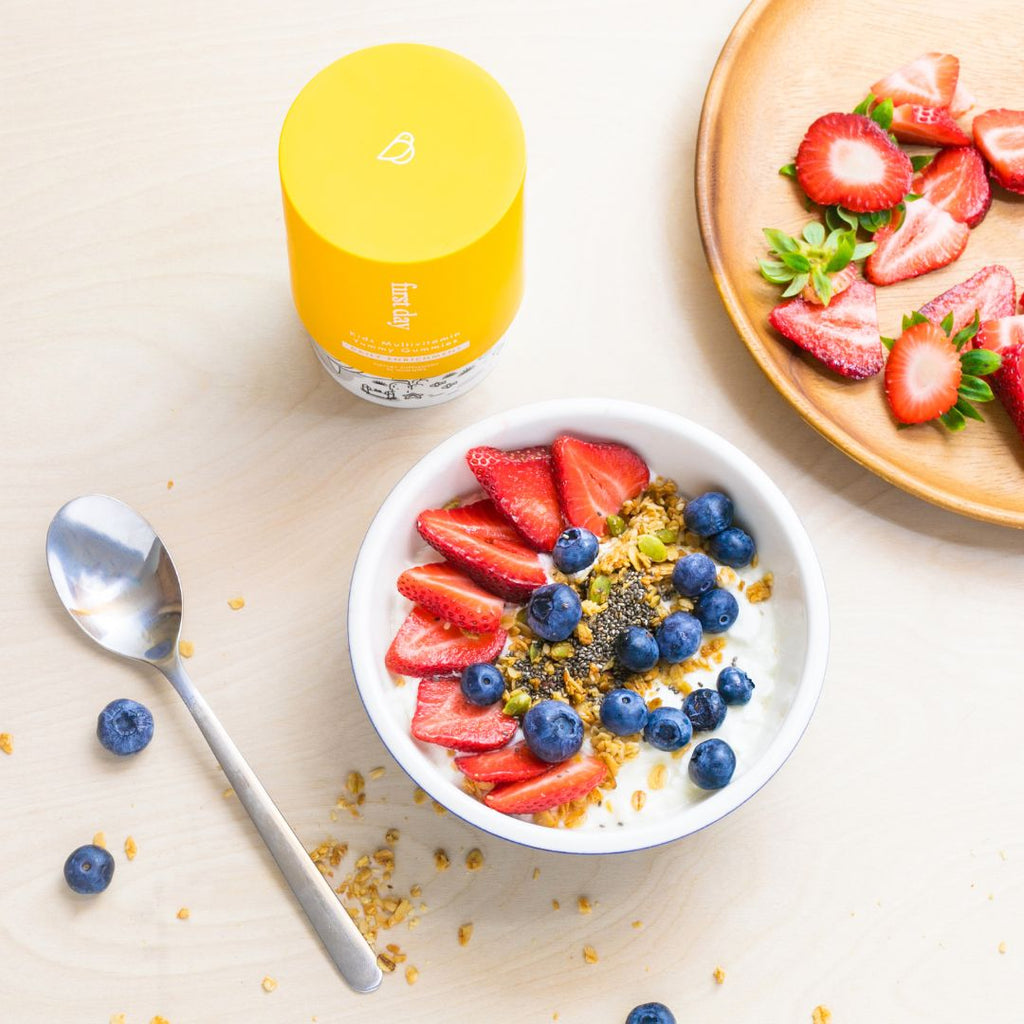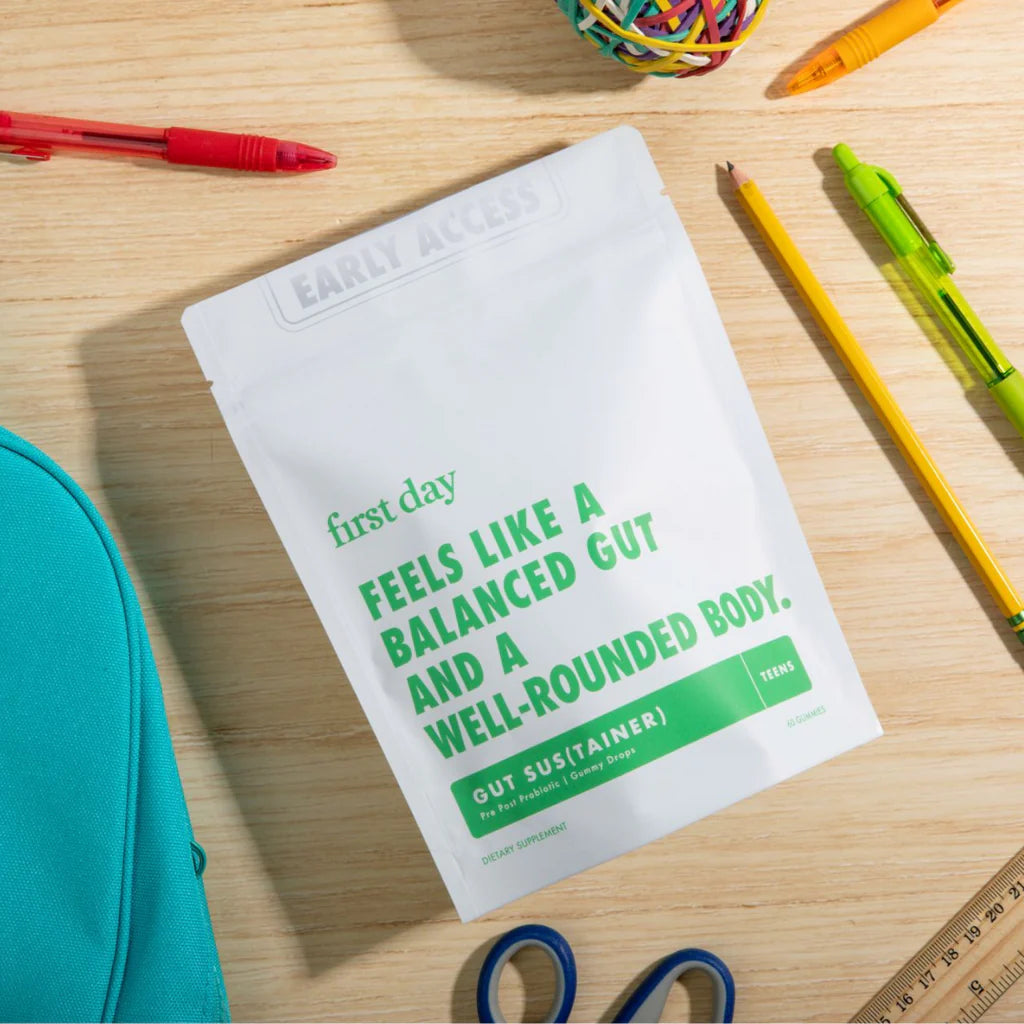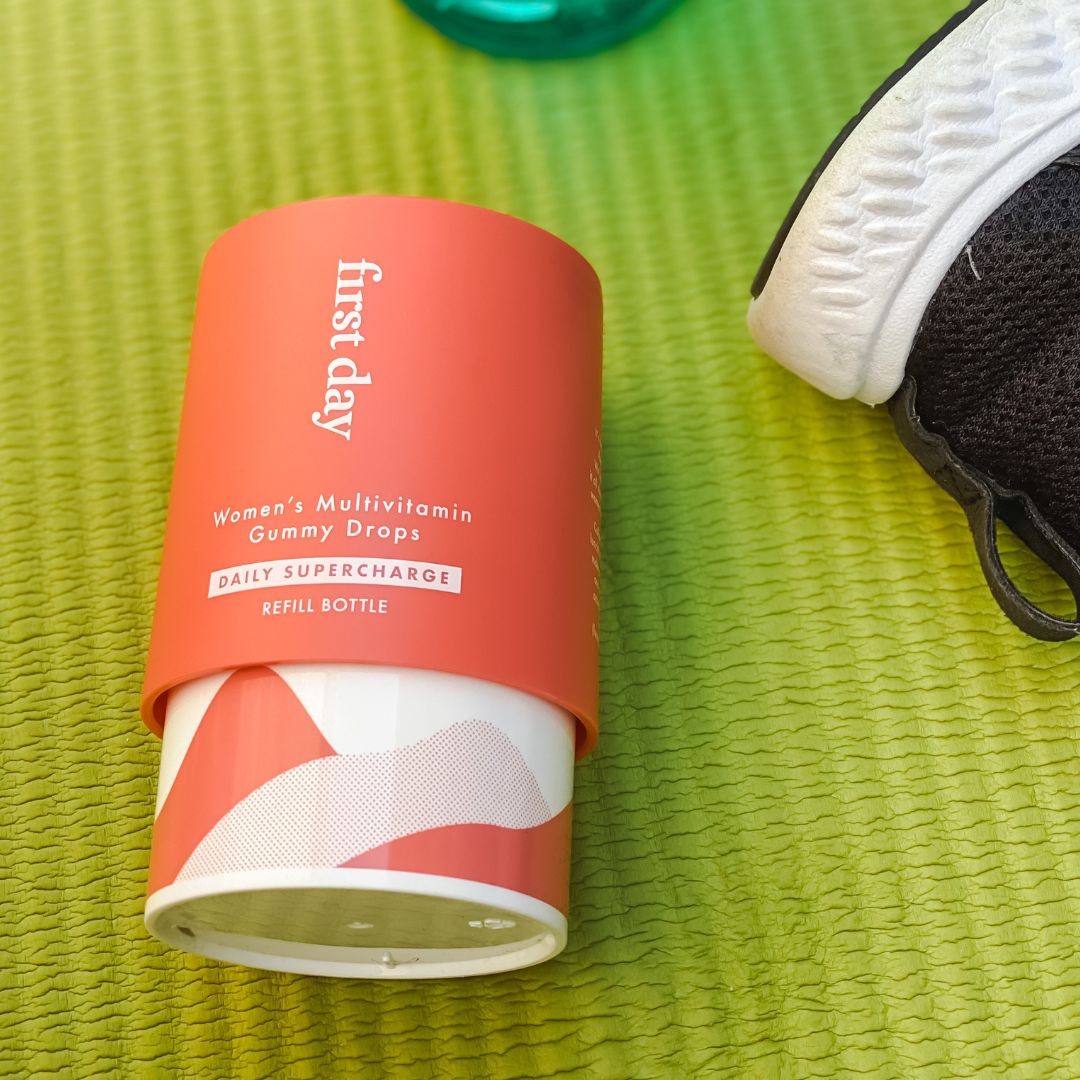Ah, vitamin D, the charming "sunshine vitamin" that not only basks in the glory of the sun's rays but also sneaks into our diets through the deliciousness of fish, eggs, and cheese. It's that magical touch that helps keep our bones sturdy, our immune systems vigilant, and our moods as bright as a sunny day at the beach. Yet, despite all its shimmering benefits, it seems we've been playing hide and seek with it a little too well. In fact, about 41.6% of Americans find themselves in the shade when it comes to getting enough vitamin D.
In this blog post, we’ll soak up the sun and get to the heart of the question, "What does Vitamin D do?"
Catching Some Rays and Noshing on Nutrients
Let's be real: nobody wants to lack vitamin D. But sometimes life gets in the way of getting a proper dose of the sunshine vitamin, especially during winter or for those who don't live in sunnier climates. Luckily, we can still get our daily dose through food and supplements.
Bask in the Natural Glow: Sunlight Exposure
Getting your daily D dose from the sun is like hitting the health jackpot—totally free and fun! Think of your skin as a vitamin D factory that kicks into high gear when sunlight strikes. Once UVB rays from the sun hit the skin, they convert a form of cholesterol present in the skin into Vitamin D3. The action doesn't stop there, though. This D3 then takes a trip to your liver and kidneys where it gets jazzed into the form that your body can actually use. Just like that, poof, you’ve got the Vitamin D your body’s been craving!
But not everyone synthesizes vitamin D at the same rockstar pace. A lot depends on your skin tone, where you live, and even the time of year. For instance, those with more melanin (darker skin) have a natural sunscreen that slows down vitamin D absorption. Living farther from the equator means less UVB reach, especially during the winter months when the sun seems to have disappeared. And let's not forget the sunscreen and clothing conundrum; they're great for protection against Skin Enemy #1 (sunburns and potential cancer), but they also cut down on vitamin D absorption. Studies have indicated that these factors need to be countered either by extended exposure to sunlight or through diet and supplements to ensure sufficient Vitamin D levels
All in all, experts say that exposing your skin for about 10 to 30 minutes several times a week should do the trick, depending on your skin's melanin content and where you live. But remember sunscreen is still your BFF because no one wants a side of sunburn with their vitamins.
Yummy D-Lights: Dietary Sources
If the sun's playing hard to get, your plate can also serve up some serious D-lightful options. Certain fish with a flair for swimming in cold waters (we're talking about you, salmon and mackerel) are like swim-up bars for vitamin D. Cheese and egg yolks are also down to party. And for the plant-lovers, mushrooms can give you a natural boost, too since they are rich in the vitamin D3 counterpart, vitamin D2. Plus, loads of foods come fortified with Vitamin D, so even your morning OJ or cereal can help you reach your daily goals.
Got a Backup Plan: Supplements & Gummy Multivitamins

Life's busy, the weather's unpredictable, and sometimes you're just not up for a fillet of fish at breakfast—enter vitamin D multivitamins, your backup band that's ready to play on days when the sun's on vacay or your diet's missing vitamin D. Various studies suggest that supplements are a reliable source to ensure you're getting enough Vitamin D, especially for folks living in the not-so-sunny spots of the globe.
For instance, First Day gummy multivitamins are the tasty, chewable safety nets for your vitamin D needs, each one packed with just the right amount of vitamin D to brighten your day. And the best part? Our variety is as wide as the smiles they induce—from tots to teens, men to women, we've crafted a specific blend to ensure that each sun-loving heart gets its tailor-made dose of this radiant nutrient. So, come rain or shine, you can count on our delightful gummies to keep your vitamin D levels at the right spot.
Discover The Joy of First Day For Your Vitamin D Needs!
What Does Vitamin D Do: Functions of Vitamin D
Now, let's dive into the question, "What does vitamin D do?" This little vitamin wears a bunch of really cool capes, helping maintain our bone integrity, power up our immune system, and even keep our cells growing just right.
The Skeleton Crew: Vitamin D and Your Bones
Here's the deal: vitamin D is key to calcium absorption in the belly, which means it's a VIP for our skeleton crew. Without it, our bones could go all soft on us, a condition known as rickets in kids and osteomalacia in adults. And hey, it's not just about avoiding the squishiness—adequate vitamin D is linked to a lower risk of bone fractures.
The Immunity Troopers: Vitamin D's Role in Immune Health
Raise the shields and charge the lasers, vitamin D's on the front lines regarding our immune defense. This nutrient modulates our immune system—which is just a science-y way of saying it keeps things balanced. Too little D and you're looking at a higher risk of infections, but just the right amount could mean your immune response is cooking with gas. The World Health Organization even reported that vitamin D supplements lowered the risk of acute respiratory infections.
The Mood Booster: Vitamin D and Mental Health
So, Vitamin D isn't just about bones and immunity—it's also about keeping those brain juices flowing! Research suggests that Vitamin D plays a key role in mental health, acting like a little ray of sunshine for your mood. Low levels of Vitamin D are often found in folks dealing with anxiety and depression supplementing with Vitamin D may help ease those blues.
Vitamin D Deficiency
Now let's decode the distressed signals your body sends when it's running on E for Vitamin D.
Early warning signs can be super stealthy—think:
- fatigue
- bone aches and pain especially in kids
- muscle weakness
- frequent infections
- or even mood changes.
Then, there are the big red flags that shout, "Hey, we've got a problem!" like:
- severe bone or joint pain
- stress fractures
- hair loss
- rickets in kids
- or muscle cramps.
If you experience any of these symptoms, it's a good idea to check with your doctor to see if vitamin D deficiency may be the culprit. Luckily, most people can easily treat this issue by upping their sun exposure or supplementing with Vitamin D.
But the first (first!) step is to speak with your doctor. They have the tools to test your vitamin D levels and prescribe the right course of action.
So, What Does Vitamin D Do?: Final Thoughts
It's clear that the sunshine vitamin is pretty much a rockstar for our bodies—keeping our bones sturdy, our immune system sharp, and our cells in check, not to mention its cameo in boosting our mood. Don't let the sunshine vitamin slip off your radar; it's crucial to keep your levels in the ideal range.
Whether it's catching some rays responsibly, munching on D-rich foods, or popping a yummy First Day gummy, it's worth it to keep this nutrient on your side. First Day, like always, is here for you with the perfect blend of Vitamin D to keep your vitamin levels and spirits bright. So, let's make sure we're getting enough of that "sunshine in a bottle".
Discover The Joy of First Day For Your Vitamin D Needs!
References:
Forrest, K. Y. Z., & Stuhldreher, W. L. (2011). Prevalence and correlates of vitamin D deficiency in US adults. Nutrition Research, 31(1), 48–54. https://doi.org/10.1016/j.nutres.2010.12.001
Nair, R., & Maseeh, A. (2012). Vitamin D: The “sunshine” vitamin. Journal of Pharmacology & Pharmacotherapeutics, 3(2), 118–126. https://doi.org/10.4103/0976-500X.95506
Webb, A., Kazantzidis, A., Kift, R., Farrar, M., Wilkinson, J., & Rhodes, L. (2018). Colour Counts: Sunlight and Skin Type as Drivers of Vitamin D Deficiency at UK Latitudes. Nutrients, 10(4), 457. https://doi.org/10.3390/nu10040457
Wacker, M., & Holick, M. F. (2013). Sunlight and Vitamin D. Dermato-Endocrinology, 5(1), 51–108. https://doi.org/10.4161/derm.24494
Cicarma, E., Porojnicu, A. C., Lagunova, Z., Dahlback, A., Juzeniene, A., & Moan, J. (2009). Sun and sun beds: inducers of vitamin D and skin cancer. Anticancer Research, 29(9), 3495–3500. https://pubmed.ncbi.nlm.nih.gov/19667143/
Holick, M. F. (1996). Vitamin D and Bone Health. The Journal of Nutrition, 126(suppl_4), 1159S1164S. https://doi.org/10.1093/jn/126.suppl_4.1159s
Aranow, C. (2011). Vitamin D and the immune system. Journal of Investigative Medicine : The Official Publication of the American Federation for Clinical Research, 59(6), 881–886. https://doi.org/10.2310/JIM.0b013e31821b8755
Vitamin D for prevention of respiratory tract infections. (n.d.). Www.who.int. Retrieved March 3, 2024, from https://www.who.int/tools/elena/commentary/vitamind-pneumonia-children#:~:text=Overall%2C%20there%20was%20a%20significant
Akpınar, Ş., & Karadağ, M. G. (2022). Is Vitamin D Important in Anxiety or Depression? What Is the Truth? Current Nutrition Reports, 11(4). https://doi.org/10.1007/s13668-022-00441-0






